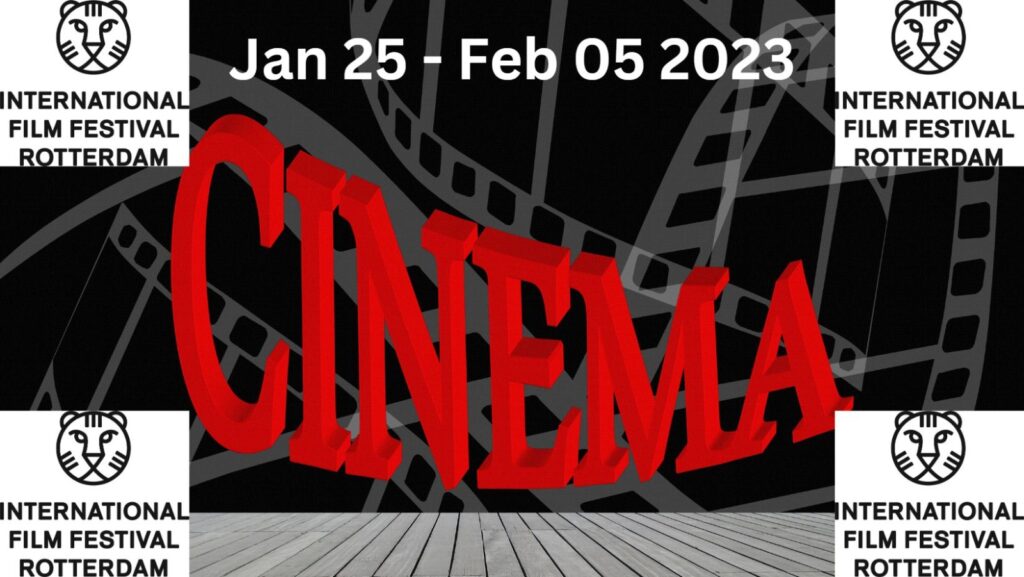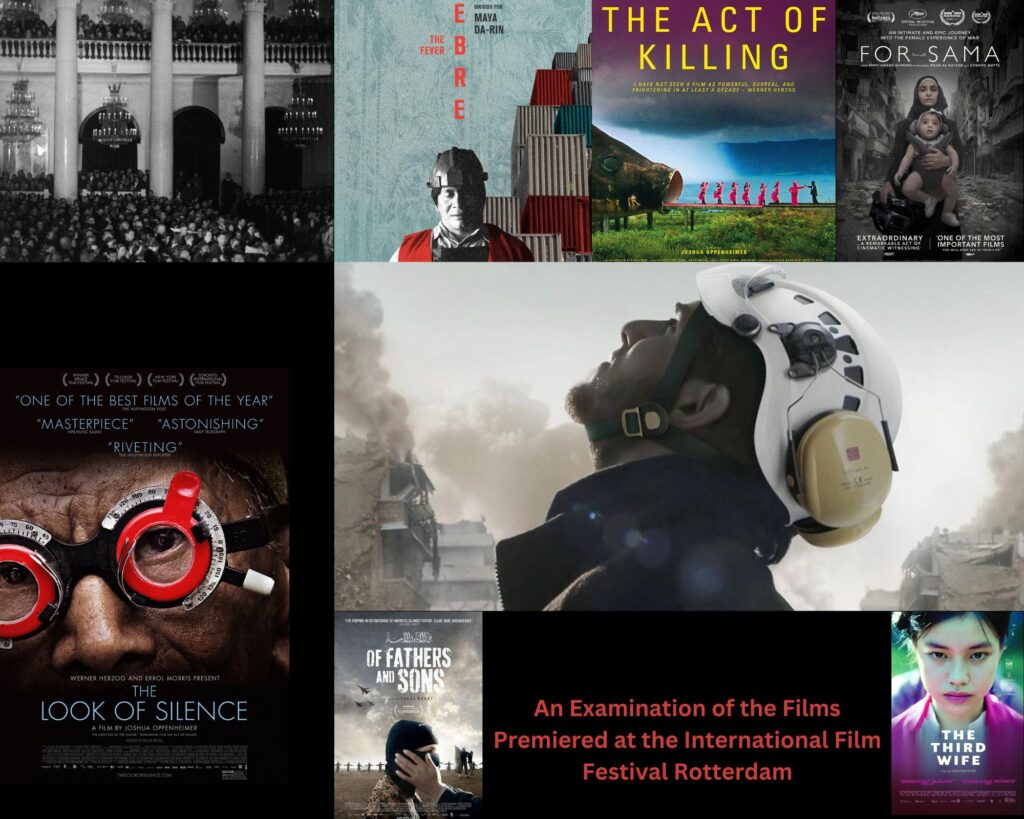
Summary:
- This article will examine the political themes and subtext present in the films premiered at the International Film Festival Rotterdam, exploring how these films use the medium of cinema to comment on current political issues and societal concerns.
- In 2016, the festival screened the film “The White Helmets,” directed by Orlando von Einsiedel.
- These examples reveal a pattern of the festival’s tendency to screen highly controversial and one-sided films in their representation of specific issues.
- In conclusion, the International Film Festival Rotterdam has a reputation for showcasing films that challenge the status quo and push the boundaries of cinema.
- However, a closer examination of the festival’s selection of movies reveals a pattern of screening politically charged films that are highly controversial and often one-sided in their representation of specific issues.
The International Film Festival Rotterdam (IFFR) is one of the most renowned film festivals in the world, known for showcasing experimental and cutting-edge films from around the globe. The festival, which has been running since 1972, is renowned for its focus on independent and avant-garde cinema. It has a reputation for showcasing films that push boundaries and challenge the status quo. However, many may not know that many films that premiered at the festival also contain subtle political undertones and messages. This article will examine the political themes and subtext present in the films premiered at the International Film Festival Rotterdam, exploring how these films use the medium of cinema to comment on current political issues and societal concerns.
The festival, which takes place annually in January, has a reputation for being one of the most forward-thinking and innovative film festivals in the world. The festival’s focus on showcasing independent and avant-garde cinema has helped to establish it as a platform for emerging filmmakers and a destination for cinephiles looking to discover new and exciting films. The festival’s selection process is highly selective, with only a tiny percentage of the thousands of movies submitted each year making it to the final lineup. The festival’s curatorial approach is known for its focus on showcasing films that challenge the status quo and push the boundaries of what cinema can be.
One of the most striking things about the films that premiered at the festival is the subtle political undertones in many of them. These films often use the medium of cinema to comment on current political and societal concerns and raise awareness about important social and political issues. For example, the festival has premiere films tackling topics such as immigration, gender and sexuality, and the environment. Some films have also dealt with more controversial issues, such as political corruption, poverty, and police brutality.
For instance, in 2020, the festival premiered the film “The Fever” by Maya Da-Rin. This Brazilian film explores the relationship between an indigenous man, Justino, and the city where he works as a security guard. The film highlights indigenous people’s cultural and economic displacement and their struggles adapting to modern urban life. The film is a powerful commentary on the marginalization and discrimination faced by indigenous people in Brazil, and the critics highly praised it for its subtle yet powerful political undertones.
Another film that premiered in the same year, “The Third Wife” by Ash Mayfair, is a Vietnamese film that explores the lives of three women living in rural 19th-century Vietnam. The film, which was awarded the festival’s Tiger Award for the best first feature, is a powerful commentary on the patriarchal culture of Vietnam and the oppression of women. Through its portrayal of the lives of these three women, the film raises important questions about the role of women in society and how they are denied agency and autonomy.
The festival has also premiered films that have dealt with more controversial topics, such as political corruption. One such film that premiered in 2019, “The Trial” by Sergey Loznitsa, is a Ukrainian film that examines the political corruption and abuse of power that has plagued Ukraine for decades. The film awarded the festival’s Tiger Award, is a powerful commentary on Ukraine’s political situation and how ordinary citizens are affected by political corruption.

2023 Controversy: Den Haag-based Hindu spiritual preacher reaches out to the Dutch Administration through the media to protect the Kingdom of Netherlands from being termed “Exporters of Hatred and Disharmony.”
Swamy Keshavanada ji Maharaj, who introduced himself as a spiritual practitioner and preacher of Hindu religion and philosophy based in the Hague, issued a press release before the start of the International Film Festival requesting the Dutch Administration to stop screening some controversial films and documentaries. The movies and documentaries in question are Firaaq (2008), In the name of God (1992), Sameer (2017), Final Solution (2014), and some others which, according to him, were produced with malafide intentions of escalating tensions, conflict, and hatred among the Hindus and the Muslims are being screened at the Film Festival.
In the press release, he said, “I am very much pained and unable to believe that how these ill-intention movies or documentaries can find place in any event of the Kingdom of Netherlands which comprises of the city of Peace & Justice. Our Kingdom is always known for promoting harmony, peace and justice worldwide and we should not allow any conspirator to spread any message of hatred, violence, and disharmony using our homeland.”
He further added, “I request the Dutch Administration through the media to immediately take necessary actions to stop screening of the above mentioned films and documentaries in the International Film Festival Rotterdam and save our Kingdom of Netherlands from being branded as “Exporters of Hatred and Disharmony” by a section of International Community.”
A section of the Indian diaspora in the Netherlands believes that there are parliamentary elections to be held in India in 2024, and the ruling party, BJP, led by Prime Minister Narendra Modi, is being targetted by showcasing the 2002 Gujarat riots and Citizen Amendment Act protests. A Rotterdam-based businessman, Madan Desai, of Indian origin, says, “this is the leftist agenda of tarnishing India’s image globally. They are jealous of Modi and the new Global power India emerging under Modi’s leadership”.
The International Film Festival Rotterdam (IFFR) has also long been touted as a platform for showcasing films that challenge the status quo and push the boundaries of cinema. However, a closer examination of the festival’s selection of movies reveals a pattern of showcasing politically charged films that are highly controversial and often one-sided in their representation of specific issues.
One of the most notable examples is the documentary “The Act of Killing” (2012), directed by Joshua Oppenheimer. The film, which premiered at IFFR, deals with the mass killings of supposed communists in Indonesia from 1965-1966. However, the film faced backlash from the Indonesian government for its one-sided representation of the events and misleading portrayal of the situation. Despite this, the festival defended its decision to screen the film by citing its commitment to the principle of freedom of expression.
Another film that faced similar controversy is “The Look of Silence” (2014), also directed by Joshua Oppenheimer. The film deals with the aftermath of the 1965-1966 mass killings in Indonesia and once again faced backlash from the Indonesian government for its one-sided representation of the events. The festival yet again defended its decision to screen the film by citing its commitment to the principle of freedom of expression.
In 2016, the festival screened the film “The White Helmets,” directed by Orlando von Einsiedel. The film is about the Syrian Civil Defense, also known as the White Helmets, a group of volunteer rescue workers operating in areas of Syria under constant bombing. Despite being praised for its storytelling, the film faced criticism from the Russian government for its alleged bias and promotion of a Western agenda. The festival, however, defended its decision to screen the movie by citing its commitment to the principle of freedom of expression.
Another documentary that faced controversy was “Of Fathers and Sons” (2018), directed by Talal Derki. The film is about a family of radicalized Islamist fighters in Syria and faced backlash from the Syrian government for its one-sided representation of the events. The festival once again defended its decision to screen the film by citing its commitment to the principle of freedom of expression.
In 2019, the festival screened the film “For Sama,” directed by Waad Al-Kateab and Edward Watts. The film is a personal story of a young Syrian mother, Waad Al-Kateab, and her experiences living through the Syrian civil war. Despite being praised for its storytelling, the film faced criticism from the Syrian government for its alleged bias and promotion of a Western agenda. The festival, yet again, defended its decision to screen the film by citing its commitment to the principle of freedom of expression.
These examples reveal a pattern of the festival’s tendency to screen highly controversial and one-sided films in their representation of specific issues. The festival’s commitment to the principle of freedom of expression cannot excuse its lack of due diligence in ensuring that the films it screens present a balanced and nuanced portrayal of the issues they tackle. It is imperative that the festival takes a more critical and responsible approach in its selection of films in order to truly live up to its reputation as a platform for challenging the status quo and pushing the boundaries of cinema.
Furthermore, the festival’s justifications for screening these films raise questions about its genuine commitment to freedom of expression. While it is understandable that the festival wants to showcase films that challenge the status quo, it must also consider the potential consequences of screening films that are so controversial and one-sided. The festival is responsible for ensuring that the films it screens do not incite further division and conflict but rather foster dialogue and understanding.
Furthermore, the festival’s tendency to screen highly controversial and one-sided films raise questions about its political biases. The festival’s consistent defense of the movie, despite backlash from governments and criticism for bias, raises suspicions that it may have a political agenda. It is crucial for the festival to be transparent about its political leanings and for its selection process to be more transparent and open to scrutiny. The festival’s selection process and curatorial approach also reflect the current political and societal landscape of the Netherlands, the European Union, and the world. The festival’s focus on independent and avant-garde cinema and films dealing with significant social and political issues reflect the Netherlands and the world’s broader cultural and political climate. It reflects the growing awareness of the need to address critical social and political issues and promote greater understanding and empathy among different cultures and communities.
The festival’s lack of representation of voices from the countries and regions depicted in these controversial films is also problematic. The festival must ensure that diverse perspectives are represented, not just the filmmakers’ perspectives. By not providing a platform for voices from the affected regions, the festival misses out on a significant opportunity to foster understanding and promote true freedom of expression.
In conclusion, the International Film Festival Rotterdam has a reputation for showcasing films that challenge the status quo and push the boundaries of cinema. However, a closer examination of the festival’s selection of movies reveals a pattern of screening politically charged films that are highly controversial and often one-sided in their representation of specific issues. The festival’s commitment to freedom of expression cannot excuse its lack of due diligence in ensuring that the films it screens present a balanced and nuanced portrayal of the issues they tackle. It is imperative that the festival takes a more critical and responsible approach in its selection of films in order to truly live up to its reputation as a platform for challenging the status quo and pushing the boundaries of cinema.
